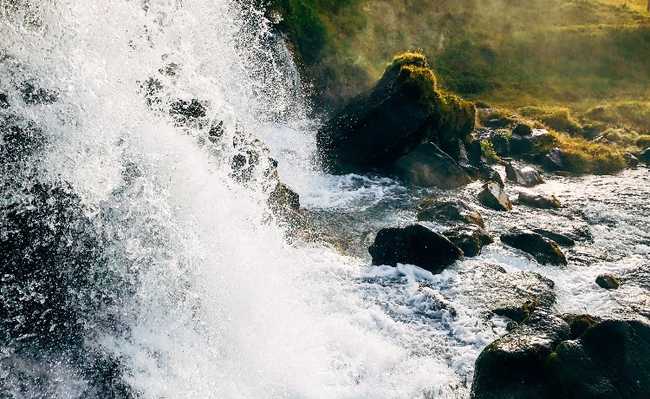World Water Day is celebrated on March 22
World Water Day was created by the UN in 1993 to make the population aware of the importance of taking care of water

Image: Chris Liverani on Unsplash
The first World Water Day was celebrated in 1993. In that year, the UN (United Nations) established March 22 as a date for raising awareness about the rational use of water and its importance. The objective is not only to pay tribute to the priceless good without which there would be no life on Earth, but to raise awareness of the problems involving water today.
Each year, a new theme is launched for World Water Day, in order to alert governments and citizens to think about solutions and eliminate current problems. For 2020, the theme chosen by the UN was “Water and climate change”, alerting to the fact that we must not leave anyone behind, concentrating efforts to include people who have been marginalized or ignored.
World Water Day has already had themes such as Women and Water (1995), water for the future (2003), Dealing with water scarcity (2007), Clean water for a healthy world (2010), Water for cities: responding to the urban challenge (2011) and Water and sustainable development (2015). In 2018, the theme The answer is in nature pointed to the use of nature-based solutions as a way to solve water resources management problems; and, in 2019, the theme Water for All warned of the 2.1 billion people living without clean water at home.
The date arose in the context of discussions that preceded Eco92. On March 22, 1992, the Universal Declaration of Water Rights was released by the UN. It was decided that the date would mark from then on World Water Day, to be celebrated every year.
Read the full Universal Declaration of Water Rights:
"This Universal Declaration of Water Rights was proclaimed with the aim of reaching all individuals, all peoples and all nations, so that all men, having this Declaration constantly in their spirit, strive, through education and teaching, in developing respect for the announced rights and obligations and, with progressive measures of national and international order, their recognition and effective application emerge.- Art. 1 - Water is part of the planet's heritage. Every continent, every people, every nation, every region, every city, every citizen is fully responsible in the eyes of all.
- Art. 2 - Water is the sap of our planet. It is the essential condition of life for every plant, animal or human being. Without it, we would not be able to conceive what the atmosphere, climate, vegetation, culture or agriculture are like. The right to water is one of the fundamental human rights: the right to life, as stipulated in Article 3 of the Declaration of Human Rights.
- Art. 3 - The natural resources for transforming water into drinking water are slow, fragile and very limited. Therefore, water must be handled with rationality, precaution and parsimony.
- Art. 4 - The balance and future of our planet depend on the preservation of water and its cycles. These must remain intact and functioning normally to ensure the continuity of life on Earth. This balance depends, in particular, on the preservation of the seas and oceans, where the cycles begin.
- Art. 5 - Water is not only a legacy of our predecessors; it is, above all, a loan to our successors. Its protection is a vital necessity, as well as a moral obligation of man to present and future generations.
- Art. 6 - Water is not a free donation from nature; it has an economic value: one needs to know that it is sometimes rare and expensive and that it may well become scarce in any region of the world.
- Article 7 - Water must not be wasted, polluted or poisoned. In general, its use must be made with awareness and discernment so that it does not reach a situation of exhaustion or deterioration in the quality of the reserves currently available.
- Art. 8 - The use of water implies respect for the law. Its protection is a legal obligation for every man or social group that uses it. This question must not be ignored by either man or the state.
- Art. 9 - Water management imposes a balance between the imperatives of its protection and economic, health and social needs.
- Art. 10 - The planning of water management must take into account solidarity and consensus due to its unequal distribution over the Earth."
Check out the water tips page at eCycle portal . So you become aware of how to avoid unnecessary water use not only on World Water Day, but in various situations in your life.










